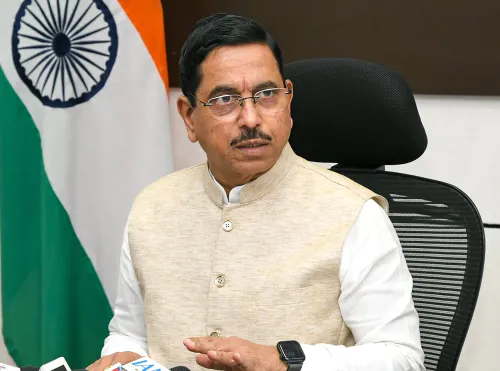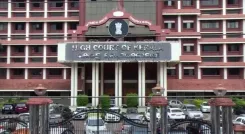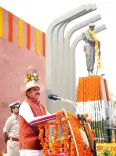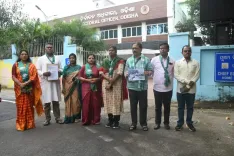Will GST Relief Truly Benefit Farmers and Common People?
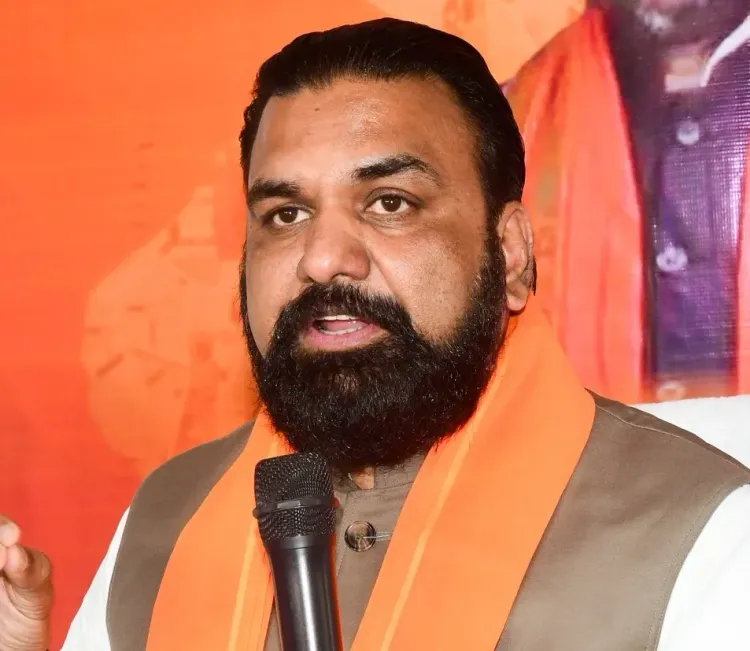
Synopsis
Key Takeaways
- GST abolished on food items
- Textile GST reduced from 12% to 5%
- Lower taxes on employment-related goods
- Initial revenue loss expected
- Focus on farmers and public welfare
Patna, Sep 4 (NationPress) Following a significant GST Council meeting in Delhi, Bihar's Deputy Chief Minister Samrat Choudhary announced that the government has implemented critical measures to address public concerns regarding the Goods and Services Tax (GST), with noticeable effects expected in the future.
In a media briefing in Patna, Choudhary stated that GST has been eliminated on all food items, resulting in an approximate 5% GST charge for consumers.
He mentioned that taxes on employment-related goods have also been reduced, offering substantial advantages to farmers and the general public.
Detailing specific reforms, the Deputy CM noted that the GST on textiles has been decreased from 12% to 5%, aiming to curb inflation and alleviate financial pressure on citizens.
“The poor, farmers, and India’s economic framework have been prioritized. This is a relief initiative for the everyday individual,” Choudhary remarked.
He stressed that the government is dedicated to fostering a Swadeshi campaign aimed at enhancing self-sufficiency and economic progress.
“As Prime Minister Narendra Modi proclaimed from the Red Fort on August 15, the nation's economy is now receiving support. Bihar and the entire country will thrive due to these reforms,” he added.
Choudhary refuted claims from the opposition, asserting that the decisions made during the GST Council meeting clearly illustrate the government's efforts to alleviate public hardships and maintain inflation control.
He acknowledged that the reduction in Goods and Services Tax (GST) rates will likely affect government revenue, but it will deliver essential relief to the populace, farmers, and the healthcare sector.
Choudhary elaborated that while this decision may lead to an initial revenue deficit of ₹93,000 crore, after internal adjustments, the government would ultimately incur a net loss of about ₹40,000 crore.
“Despite this financial burden, the citizens of India will experience relief. Farmers will gain, the healthcare sector will receive concessions, and this initiative serves as a booster for self-sufficiency,” he stated.
The Deputy CM asserted that the decision reflects the government's dedication to shielding the public from inflation while simultaneously stimulating economic activities through reduced taxation.
Meanwhile, Choudhary made a pointed remark towards RJD leader Lalu Prasad Yadav, questioning his understanding of finance: “If he is discussing finance, then that’s a positive development.”

